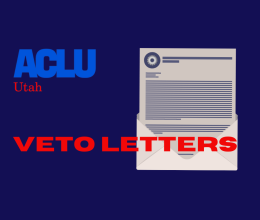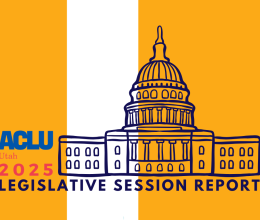The ACLU, the ACLU of Utah, Equality Utah, Salt Lake County Firefighters IAFF Local 1696, and two individuals are seeking to intervene in a case to thwart an administrative subpoena filed by the federal Drug Enforcement Administration (DEA) against the State of Utah that requests confidential prescription records from a state database without a warrant.
In 1996, Utah began tracking records of prescriptions for certain drugs dispensed by pharmacies, compiling these records into the Utah Controlled Substance Database (UCSD). The program was nominally intended to help physicians prevent drug overdoses and abuse by their patients, but also contained a provision providing access to law enforcement agents. Governor Leavitt expressed concern about the potential for problems with that access, and later those concerns proved valid. For example, in 2014, a police detective investigating a theft of prescription drugs accessed the prescription records of all 480 employees of Utah’s largest fire agency on the UCSD without a warrant. Though no one was prosecuted for the theft, some firefighters were accused and prosecuted for “doctor shopping,” which caused major damage to their lives. In the wake of public outcry over this incident, Utah’s legislature in March 2015 amended the law that regulates access to the UCSD, requiring law enforcement officers to obtain a probable cause warrant from a court before they gaining access to the database.
Despite Utah’s warrant requirement, the DEA asserts that it should be able to use administrative subpoenas to gain access to drug records in Utah’s prescription database. Unlike a search warrant issued by a neutral magistrate upon a finding of probable cause, an administrative subpoena is granted based on a much lower standard -- it can be issued by the government when an agent merely believes that the records will be “relevant or material” to an investigation. Because prescription drug records can reveal highly sensitive information about us, we have become involved in this this case to ensure that the DEA is properly bound by the Fourth Amendment, which protects our most private medical information.
News
- PRESS RELEASE: ACLU of Utah Files Objections to Decision in DEA Lawsuit over State Drug Database (3/27/17)
- PRESS RELEASE: ACLU Joins Lawsuit to Defend Confidential Medical Records from Warrantless Federal DEA Searches (7/27/16)
Legal Documents
- See list of legal documents at the bottom of this webpage.
Blogs
- ACLU Supports State of Utah in Legal Showdown With DEA Over Medical Privacy (7/28/16)
- Protect Our Virtual Medicine Cabinets! (7/13/16)
- Drug Enforcement Administration v. Utah Dept. of Commerce (ACLU National webpage)




